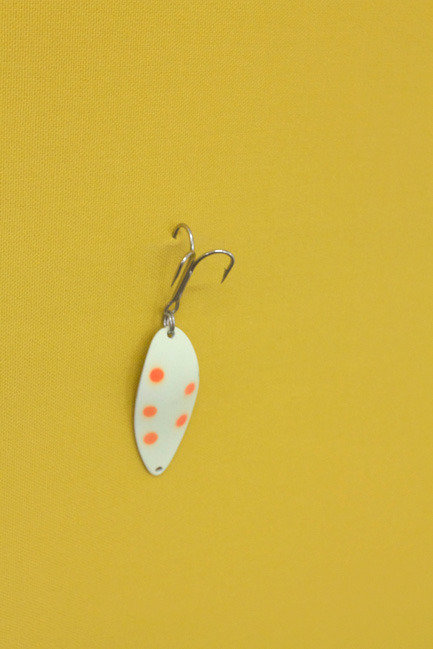Hello? I forgot my mantra
dal 24/2/2012 al 13/4/2012
Segnalato da
24/2/2012
Hello? I forgot my mantra
Clifton Benevento, New York
A group exhibition suggesting a burdened quest for meditation, transcendence, leisure and pleasure featuring works by Paul Cowan, Aleksandra Domanovic, Melodie Mousset, Nina Beier and Marie Lund.

In Anhedonia, Aleksandra Domanović superimposes the audio track of Woody Allen's Annie Hall
(1977) onto stock footage from the Getty Image archive. Replacing the film’s visuals can be
conceptually understood as a reversal of Allen's debut, What's Up Tiger Lily? (1966), a comedy where
Allen added new dialogue instead of translating the material co-opted from a 1965 Senkichi Taniguchi
feature. On a semantic level, the fixed score in Annie Hall - a film with little incidental music - is
reordered. Using the original soundtrack of the film as script or guide, Domanović exchanges one layer
of visual information for another to produce an original object that oscillates between the literal, the
allegorical and the obtuse. Enabled on a material level by the development of the Getty archive -70
million still images and 30,000 hours of stock footage and growing – Domanović points to the dulling
relationship between pleasure and an over-abundance of visual information. Anhedonia, a
psychological condition marked by an inability to experience satisfaction from normally pleasurable
actions like eating, exercise and sex, compounds the exhibition title in their complicity with the relations
of visual excess and pleasure; both are also derived from Annie Hall.
In Paul Cowan's “fishing lure” paintings, stretched monochrome and printed fabrics are pierced with
actual fishing lures. Connecting and compressing synthesized or subversive, minimal and abstract
painterly qualities, Cowan's works mediate on issues of leisure and loafing, of boredom and hesitation
to potentially flatten and conflate contemporary discussions of painting. Using individually painted
"spoon lures" - a lure that imitates a bait fish fluttering/injured in the water to attract and frustrate other
fish, and the more traditionally popular fly lures, Cowan gestures to both passive and active fishing
styles, and suggests a compelling narrative in latency.
Mélodie Mousset depicts a pair of blanketed figures attempting a yoga pose in Downward Dog. The
sculpture - first commissioned by MOCA, L.A. - toys with the tension between obstacle and nirvana
and distinctions between art and the everyday. A closer look reveals throughout the object a textile
block design approximating the relief ornamentation of Frank Lloyd Wright's Ennis House.
Incorporated throughout the work and suggesting material and conceptual links to Southern Californian
design, Mousset poses additional connections between intersections of sculpture and ornament, object
and transcendence.
Nina Beier and Marie Lund raise issues of chance and authorship in 42 - a collaborative work
consisting of 14 dice thrown until a sum of 42 is reached. Upon subsequent installation, the action
(which takes place prior to the exhibition opening) of throwing the dice must be performed again
though not necessarily by the artists. Enlisting a curator, gallery professional or collector to roll the dice
until the number 42 is reached, the work complicates the production process between artist and
exhibitor and questions the relationship between action and artifact. Pushing the limits of leisure, 42
suggests the toss of the dice as a determined rather than a casual gesture.
Image: Paul Cowan
Untitled, 2011 (detail)
Canvas, fishing lure
Courtesy the artist & Clifton Benevento, New York
Opening reception is Saturday, February 25 from
5-7pm.
Clifton Benevento
515 Broadway - New York
Tuesday-Saturday, 11am-6pm
Free admission



